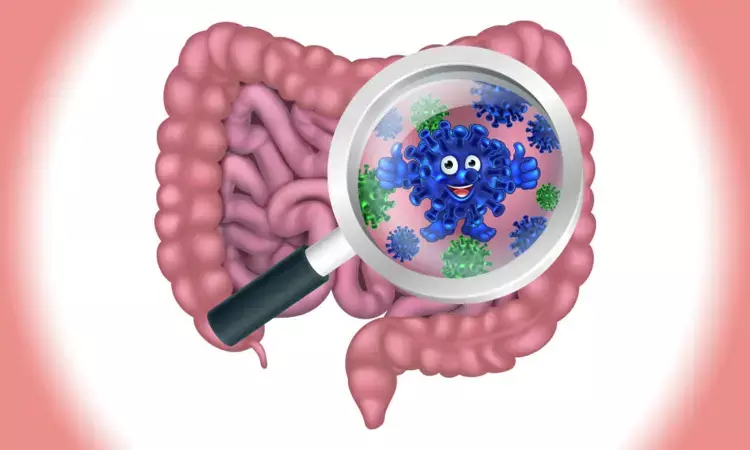- Home
- Medical news & Guidelines
- Anesthesiology
- Cardiology and CTVS
- Critical Care
- Dentistry
- Dermatology
- Diabetes and Endocrinology
- ENT
- Gastroenterology
- Medicine
- Nephrology
- Neurology
- Obstretics-Gynaecology
- Oncology
- Ophthalmology
- Orthopaedics
- Pediatrics-Neonatology
- Psychiatry
- Pulmonology
- Radiology
- Surgery
- Urology
- Laboratory Medicine
- Diet
- Nursing
- Paramedical
- Physiotherapy
- Health news
- Fact Check
- Bone Health Fact Check
- Brain Health Fact Check
- Cancer Related Fact Check
- Child Care Fact Check
- Dental and oral health fact check
- Diabetes and metabolic health fact check
- Diet and Nutrition Fact Check
- Eye and ENT Care Fact Check
- Fitness fact check
- Gut health fact check
- Heart health fact check
- Kidney health fact check
- Medical education fact check
- Men's health fact check
- Respiratory fact check
- Skin and hair care fact check
- Vaccine and Immunization fact check
- Women's health fact check
- AYUSH
- State News
- Andaman and Nicobar Islands
- Andhra Pradesh
- Arunachal Pradesh
- Assam
- Bihar
- Chandigarh
- Chattisgarh
- Dadra and Nagar Haveli
- Daman and Diu
- Delhi
- Goa
- Gujarat
- Haryana
- Himachal Pradesh
- Jammu & Kashmir
- Jharkhand
- Karnataka
- Kerala
- Ladakh
- Lakshadweep
- Madhya Pradesh
- Maharashtra
- Manipur
- Meghalaya
- Mizoram
- Nagaland
- Odisha
- Puducherry
- Punjab
- Rajasthan
- Sikkim
- Tamil Nadu
- Telangana
- Tripura
- Uttar Pradesh
- Uttrakhand
- West Bengal
- Medical Education
- Industry
Gut microbiome useful for predicting outcomes of bariatric surgery: Study

Israel: Analysis of gut microbiome can help in the better clinical management of patients planning to undergo bariatric surgery, finds a recent study.
According to the study, published in the journal mSystems, the gut microbiome can depict the patient's development and predict the outcome in advance.
A large number of people are affected by obesity and diabetes worldwide. Bariatric surgery is often the preferred method for its treatment. Predicting the long-term change in body mass index (BMI) after the surgery has important implications for people and the health care system in general. Given the strong association between sugar consumption, eating habits, BMI, and the gut microbiome. Meirav Ben Izhak, Bar-Ilan University, Ramat-Gan, Israel, and colleagues tested whether microbiome before any treatment is associated with different treatment outcomes, as well as other intakes (high-density lipoproteins [HDL], triglycerides, etc.).
For this purpose, the researchers performed a projection of the gut microbiome composition of obese (sampled before and after bariatric surgery) and lean patients into principal components and studies the relation between this projection and surgery outcome.
Key findings of the study include:
· The projection revealed three different microbiome profiles belonging to lean, obese, and obese individuals who underwent bariatric surgery, with the postsurgery microbiome more different from the lean microbiome than the obese microbiome.
· The same projection allowed for a prediction of BMI loss following bariatric surgery, using only the presurgery microbiome.
· The microbial changes following surgery were an increase in the relative abundance of Proteobacteria and Fusobacteria and a decrease in Firmicutes.
"The gut microbiome can be decomposed into main components depicting the patient's development and predicting in advance the outcome. Those may be translated into the better clinical management of obese individuals planning to undergo metabolic surgery," concluded the authors.
"These results can lead to a microbiome-based presurgery decision whether to perform surgery," they wrote
Reference:
The study titled, "Projection of Gut Microbiome Pre- and Post-Bariatric Surgery To Predict Surgery Outcome," is published in the journal mSystems.
DOI: https://journals.asm.org/doi/10.1128/mSystems.01367-20
Dr Kamal Kant Kohli-MBBS, DTCD- a chest specialist with more than 30 years of practice and a flair for writing clinical articles, Dr Kamal Kant Kohli joined Medical Dialogues as a Chief Editor of Medical News. Besides writing articles, as an editor, he proofreads and verifies all the medical content published on Medical Dialogues including those coming from journals, studies,medical conferences,guidelines etc. Email: drkohli@medicaldialogues.in. Contact no. 011-43720751


